gluten free cereal
now browsing by tag
Are Oats Gluten Free?
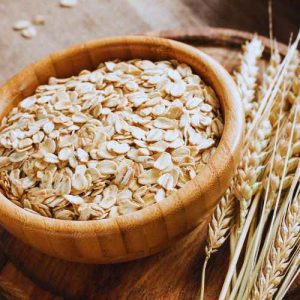
It is a common question, and unfortunately, the answers are less than straightforward. But actually, are oats gluten free?
A popular cereal grain, oats are often considered to be the ideal gluten-free choice, and many of us believe that as long as the oats are labelled as being gluten-free then we do not need to worry. We are aware of the cross-contamination issues of processing and have learned to always read the label. Job done, right?
Oats are no longer just about porridge or the odd sneaky flapjack. They are now big gluten-free business and are absolutely everywhere. In fact, oat flour and oat milk top the list of everyone’s favourite food substitutes, largely as a gluten-free swap.
So what’s the problem?
Before we talk about gluten in oats, let’s first take a proper look at gluten and the issues that surround it.
What is gluten, exactly?
The term gluten refers to two types of proteins, specifically prolamins and glutelins, which are found in wheat and other grains. These proteins interact to create a glue-like consistency when flour is combined with water. It’s this unique characteristic that gives dough its elasticity and helps baked goods maintain their shape and texture.
Among the prolamins, the most common ones causing sensitivities are gliadins in wheat, secalins in rye, and hordeins in barley. Together, these three grains are considered to be the gluten-containing grains. Interestingly though, oats also contain a prolamin protein known as avenin.
The gluten structure in grains differs significantly, which is why bread made from wheat flour has a different texture compared to bread made solely with rye or barley. The variation in the structure of prolamins is also a factor. This helps to explain why some individuals might find wheat more inflammatory than other gluten-containing grains.
Explaining gluten sensitivity
The concept of gluten sensitivity was once largely confined to those with coeliac disease. The rise of gluten-free foods was driven entirely by the growing needs of the coeliac community.
The widely accepted definition of coeliac disease is ‘an immune response triggered by the gluten proteins in the Triticeae family of grains’. Namely, wheat, barley and rye. The guidelines and regulations surrounding gluten-free products were developed with these specifics of coeliac disease in mind.
According to this definition, oats shouldn’t trigger reactions in people with coeliac disease. And, generally speaking, most individuals with coeliac disease can tolerate oats. This is why grains like rice, oats, and corn are labelled as gluten-free, even though, in theory, oats do contain gluten proteins.
Gluten sensitivity is on the rise
Yet sensitivity to gluten goes beyond coeliac disease. If the defining factor of a true cereal grain is the presence of prolamines, then surely it follows that there is gluten in all grains. We aren’t making this up purely to shoehorn a half-baked theory. Far more individuals are now showing sensitivity to more than just the big 3. Some are coeliacs; many are not.
The gluten found in all true grains can potentially trigger a reaction, although each type of grain affects individuals differently. Rice is often perceived as a particularly gentle option, but some individuals can still experience inflammatory responses to it. Similarly, corn, which frequently appears in gluten-free foods like pasta or bread, has a high protein content that can lead to sensitivities in many people.
Despite their common use as alternatives, it’s important to recognize the potential for these grains to cause issues for certain individuals.
It’s clear now that something considered safe for many individuals with coeliac disease might still provoke a reaction in those with a gluten allergy or sensitivity. Additionally, the reasons why people look for gluten-free products or information aren’t always limited to our current definitions and understanding.
Can you eat oats if you are gluten-free?
As we have seen, oats are often labelled as gluten-free, but they can still pose a risk for individuals with celiac disease or severe gluten sensitivities. The confusion often arises because oats themselves do not contain gluten; rather, they contain avenin, a protein that is similar to gluten.
Avenin, a protein found in oats, might cause reactions in individuals with gluten intolerance or celiac disease, but this isn’t always the case. If you’re sensitive to oats, it could be specifically due to avenin or possibly contamination from other grains—or even a combination of these factors.
Cross-contamination of gluten proteins can happen when oats come into contact with other grains containing gluten during growth, transport, or processing. Oats that are labelled as gluten-free have been rigorously tested to ensure they are free from gluten contamination. But as we mentioned before, these tests specifically look for gliadin, secalin, and hordein, and do not screen for avenin.
In Australia, there is no option to label oats as gluten-free, but they can be marketed as certified wheat-free.
Are Australian rolled oats gluten free?
In Australia, oats cannot be labelled as “gluten-free” under current food standards due to the possibility of cross-contamination with gluten-containing grains during processing. However, products labelled as “wheat-free” oats are cultivated and processed separately to minimize this risk. For those with celiac disease or a high sensitivity to gluten, it’s critical to consult healthcare providers before consuming oats to ensure they align with dietary requirements.
So it follows with gluten free cereals. Any breakfast cereal in Australia that is labelled gluten-free should not contain oats.
Our bestselling gluten-free granola is a super crunchy blend that contains quinoa, buckwheat, puffed rice and sorghum.
A final word
For our final word today we would like to drive home a point about gluten and following a gluten-free diet.
Food sensitivities, and the specific topic of gluten, are deeply complex. First and foremost, it’s important to acknowledge the numerous benefits that grains can offer. Our goal isn’t to demonize any particular food, and if you’re thinking about cutting something out of your diet, it should be for a good reason. Read our article about what makes a healthy breakfast.
Oats are an excellent source of nutrition and should not be dismissed lightly. An intolerance to avenin alone is not particularly common, so most gluten-sensitive people are fine with certified wheat-free oats.
Our jumbo wholegrain rolled oats are certified organic but not certified wheat-free. Why not explore our full range of healthy cereals, there’s something delicious to suit everyone.
This article was reproduced on this site with permission from operafoods.com.au the “Healthy Cereal Wholesaler”.
See original article:- Are Oats Gluten Free?
Is Rice Gluten Free?
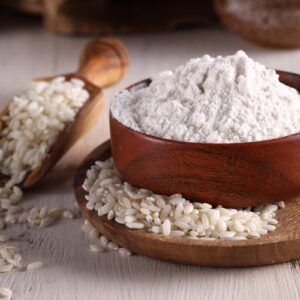
Is rice gluten free? The quick answer to that is yes it is!
Rice as a gluten free ingredient
Following a gluten free diet made up of nothing but fresh natural ingredients is pretty straightforward. Most problems arise when you stray beyond this into the realm of packaged and processed foods. Seemingly simple items may turn out to contain wheat in the ingredients, or at the very least come with the possibility of cross contamination. It has, for instance, become almost impossible to buy frozen chips without gluten as they are now invariably coated in some form of wheat.
Thankfully, many companies are now becoming more savvy about this and are using rice flour in their products instead of wheat.
Then there is cooking. Making a meal from scratch with a limited array of ingredients is not always easy. Suddenly, the simplest of things are off the menu and you need to rethink your entire recipe. Many of the sauces and condiments that we use to add flavour actually involve wheat somewhere in their processing.
Did it occur to you, for instance, that not all vinegar is safe for a gluten free diet? Luckily, rice vinegar is gluten free, and is far sweeter and less acrid than other types.
Gluten free pasta is much more palatable than it once was. Also made from rice, along with corn, some brands are almost indistinguishable from its wheat based cousins.
Rice noodles are the base of many authentic Asian dishes in their own right, but they also make a great gluten free alternative to wheat based carbs.
Gluten proteins in rice
Although rice is officially considered gluten free it does contain certain proteins that may trigger sensitivities in a small percentage of individuals. Rice passes the gluten threshold that is considered safe for coeliacs yet, as we discovered with oats, it does contain something known as prolamines. These proteins are are one of the types found in gluten and are known to cause sensitivity in some people.
This does bring into question the current definition of gluten free, and we may find that to be completely gluten free involves eliminating grains altogether.
But for most of us, rice is the ideal gluten free option. It can be used as a wheat substitute in a number of ways, making a gluten free diet more accessible to all.
Have you explored our range of gluten free groceries yet? You can also learn more with our introduction to gluten free food.
This article was reproduced on this site with permission from operafoods.com.au the “Gluten Free Cereal manufacturers and distributors”.
See original article:- Is Rice Gluten Free?
Are Oats Gluten-Free?
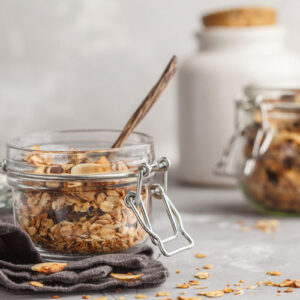
Are oats suitable for those on a gluten-free diet?
Most of us, at some point or another, have been told that oats are a gluten-free grain but, as they are often processed with grains that contain gluten, they cannot be considered suitable for a gluten-free diet. But that is not the whole story.
Before asking if oats are gluten-free, we first need to take a closer look at gluten…
What is gluten?
Gluten is the collective name we give to two types of protein that are found in wheat and other grains. These are prolamins and glutelins. Together, these proteins form a glue-like substance when flour and water are mixed.
It is the prolamins within the gluten that are most likely to cause sensitivity. The most common ones are gliadins in wheat, secalins in rye, and hordeins in barley. Oats also contain a prolamin protein. It is called avenin.
The structure of gluten varies amongst grains. It is why bread made with wheat flour is different to bread made only with rye, or barley. The structure of the prolamins also varies. This explains why some people may find wheat more inflammatory than other grains that contain gluten.
Are oats gluten-free?
So, do oats contain gluten? Strictly speaking, as they contain both glutelins and prolamins, yes they do. But the portion of the proteins that can cause allergy or sensitivity is far less than in wheat or other gluten containing grains, and their composition is somewhat different.
Are oats suitable for a gluten-free diet?
Avenin may, but not necessarily, cause a reaction in those with gluten intolerance or coeliac disease. If you do experience sensitivity to oats it may be specific to avenin, it may be triggered by contamination from other grains, or it may be both.
Cross contamination of gluten proteins can occur when oats are grown, transported, or processed, with other gluten containing grains. Oats that are labelled gluten-free have been tested and are certified free of gluten contamination. The tests however only measure for gliadin, secalin, or hordein. They do not include avenin. Here in Australia there is no gluten-free labelling for oats but they can be packaged as certified wheat-free.
Oats are an excellent source of nutrition and should not be dismissed lightly. An intolerance to avenin alone is not particularly common, so most people are fine with certified wheat-free oats.
What grains are gluten-free?
Although not all true grains, sorghum, quinoa, buckwheat, amaranth, teff, corn and rice are all gluten-free.
Gluten-free granola
Because of our strict labelling laws, if you buy gluten-free granola in Australia it should not contain oats. Oats is not technically gluten free and products sold as gluten free oats in Australia are breaking the law. (Oats, which is very low in gluten, is allowed to be sold as “Gluten Free” in the USA for example, but that does not help Coeliacs.)
That doesn’t make it any less delicious though. A lot of gluten-free granola is made with puffed grains such as rice or buckwheat, and crunchy nuggets of quinoa.
Should you Eat Gluten Free Products.
For most people the answer is a definite no. “The reality is, for most people, there is no benefit to gluten free products and in fact it may be to their detriment. Health professionals don’t like people to consume gluten-free product unless it is necessary. Because 98 percent of people simply don’t have gluten issues.” [from an article by Opera Foods 2017. “Misconceptions about Gluten Free Products“]
Whole grains, including the gluten grains wheat, barley rye and especially oats are loaded with nutrition and fibre and are health promoting. They are linked to reduced risk of: cancer, diabetes, obesity, coronary heart disease, and other chronic diseases. The fact is, a gluten free diet could be harmful.
Grain-free breakfast cereal
There are times when you want go further than gluten-free and need a grain-free breakfast cereal. Also you probably want a low sugar cereal breakfast. It isn’t easy to satisfy the sweet, milky, crispy crunch that only cereal and milk can give but the right combo of fruit, nuts and seeds can hit the spot.
So, although oats may be off the menu for some of us, there are still plenty of options when it comes to gluten-free granola or even grain-free cereal.
Check out our article on ‘what is a healthy breakfast‘ and find out why wholegrain cereal is the heart of a healthy breakfast.
If you are looking for a grain-free breakfast cereal then check out our paleo gluten-free granola. Or see what else you can find at our bulk food store.
Crispy Apple Paleo A Gluten Free Muesli Nice Benefits
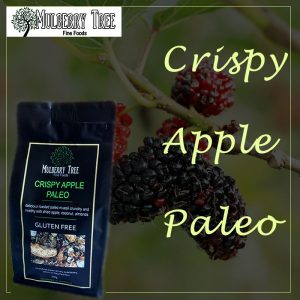
Crispy apple paleo is a product of Mulberry Tree. Whilst it is primarily a paleo muesli or granola it is also a gluten-free muesli or granola. Mulberry Tree is a wholesale granola manufacturer as well as a subsidiary of wholesale food suppliers in Australia. The business was established in the year of 1988 in Australia. The company produces a wide range of muesli from natural wholefood ingredients including dried fruits, grains, and nuts. It can be available in a independent grocery retailers in Australia and people can buy it direct from our online store.
People can make several kinds of authentic breakfast cereal dishes with the help of crispy apple paleo including apple galette, where it makes a nice sprinkle topping. Mulberry Tree manufactures a wide range of other granola and muesli products. Crispy apple paleo is a healthy paleo granola that does not include cereal grains and so remains a gluten free granola that is tasty and crunchy and chewy.
The products is distributed in Australia by parent company Opera Foods.
Benefits of Having Crispy Apple Paleo as a Breakfast Meal
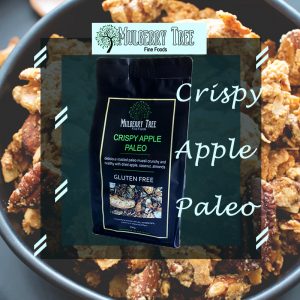
A paleo diet provides the perfect healthy balance to the immune system of our body and energizes our mind. They have a wide range of benefits like maintaining the sugar intake on our regular diets, weight loss and helps people with diabetes to a great extent. The Paleo breakfast products are made up of natural wholefoods which are processed from certified HACCP premises.
The Crispy Apple Paleo is made up of a mixture of different high protein seed, and dry fruits. The ingredients used in making a packet of Crispy Apple Paleo are Dried Apples, Dried Cranberries, Dried Apple, shredded coconut, Pepitas, etc.
Mulberry Tree offers crunchy wholesale Granola and Muesli for your perfect breakfast diet. We deliver healthy breakfast cereal to retailers in Sydney, Melbourne and Brisbane overnights.
